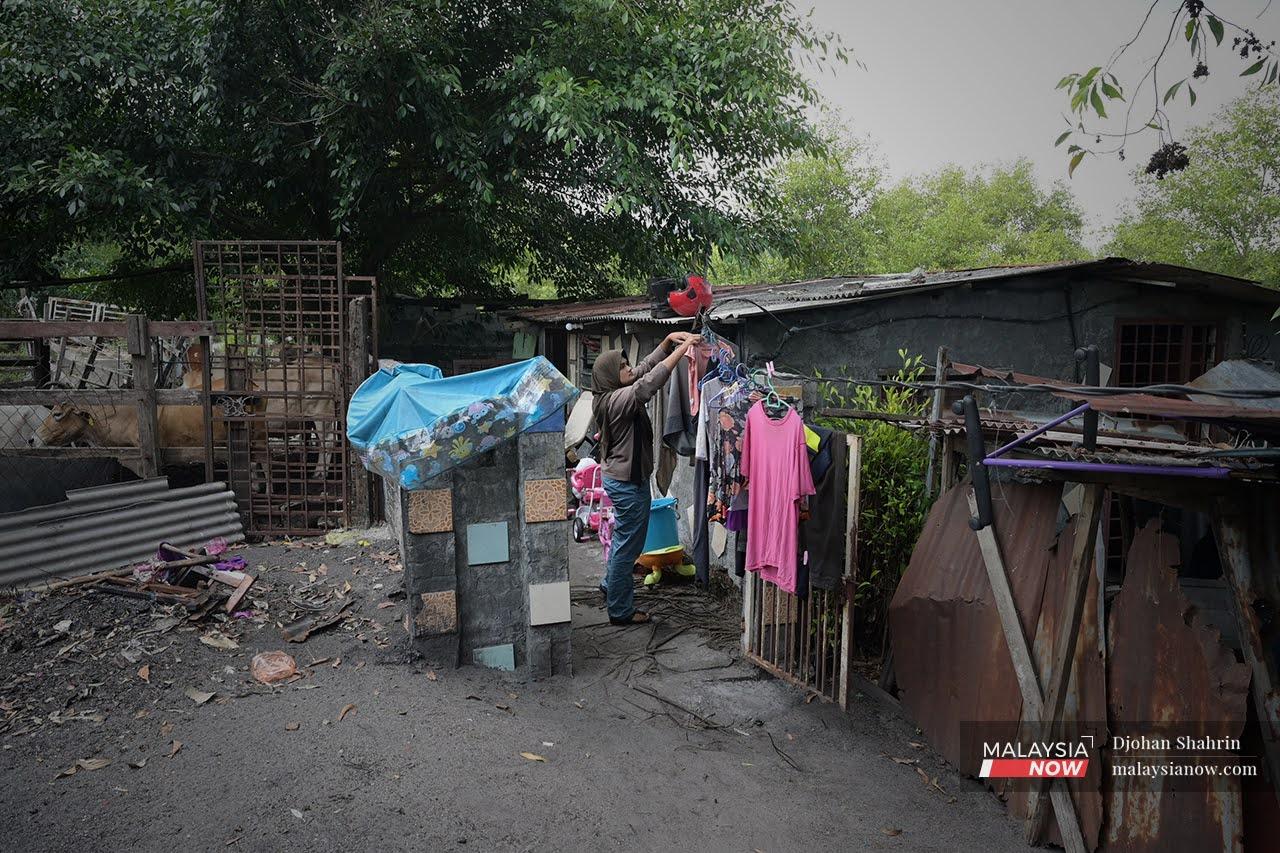A tale of two classes in Lumut tourist haven
The bright lights of the hotels in Pulau Marina throw into sharp relief the squalor in which many poor villagers live.
Just In
Off the coastal town of Lumut in Perak, Malaysia’s first man-made island – Pulau Marina – sparkles in the sunlight and shines with the glow of hundreds of lights at night – a haven for tourists in an area already known for the holiday destination of Pulau Pangkor just west of the smaller isle.
Not far from the glitter and bustle of tourist activity, though, a small fishing village tells the story of a very different side of life.
While Pulau Marina is home to huge hotels where guests are waited on hand and foot, at Kampung Teluk Muroh, there is only squalor and poverty.
Here, Ramlah Ahmad and her family have lived for the past 15 years in a small wooden house roofed over with corrugated zinc.
Ramlah was born in Beruas and grew up in Pantai Remis. She spends her days taking care of the children at home while her husband goes out to sea.

They have seven children in all, some of whom have grown up and gotten married, and some who still live in the same village although they have moved out of the family home.
Now 62, Ramlah is beginning to feel her age. These days, she sleeps on a mattress on the floor as she cannot climb in and out of bed anymore.
She also has boils on several parts of her body that need to be removed through surgery.
But the biggest problem is her nerves, especially at her feet. Day and night, she rubs her legs with oil in an attempt to lessen the pain.
“I used to get medication from the hospital but these days I use what I can get at the pharmacy,” she told MalaysiaNow.
“It costs money to go to the hospital, and it costs even more to go for surgery.”
Most days, it falls on her daughter, Zarifah Ahamad, and one of her daughters-in-law to take care of her.
As she is no longer mobile, it is easier for everyone if she wears adult diapers. On the few occasions when she must move about, she clings on to someone else for support.

Like Ramlah, the house the family lives in is also showing its age.
The few comforts they have such as the fridge and the sofa were given to them by kind-hearted donors. They also received assistance during the height of the Covid-19 pandemic last year.
Outside, they have a panoramic view of the ocean but even this is slowly disappearing.
Over the past few years, much of the area outside their home has been reclaimed for a development project.
Ramlah’s husband was forced to store his boat further away from the house, which made it difficult to keep an eye out for thieves who eventually made off with the engine.
Now, he hitches a ride on one of his friend’s boats whenever he goes out to sea. Between the uncertain weather and the increasing development, his income has been on the decline.
One of Ramlah’s children works at a nearby factory and contributes enough each month to pay the bills and cover basic necessities. Another recently had his appendix removed and is still recovering from the procedure.
In addition to taking care of her mother, Zarifah also has her own children to look after.
She has been a housewife ever since she stopped school. Her husband also goes down to sea with his friends but the money is never enough.
“Some months, he only makes a few hundred ringgit,” she said. “Sometimes there is only enough money to pay for petrol.”

Zarifah and her husband stay in a tiny house next to Ramlah’s, paying rent of RM100 a month. It’s not much to look at, and at high tide it always floods, sometimes to the point where sea creatures are swept in with the water and Zarifah finds fish, crabs and even snakes swimming in her kitchen.
Even for this house, though, they have been lagging in rent and can only depend on the kindness of their landlord to escape eviction.
“The landlord wants to sell this house for RM2,000 but we can’t afford this yet,” Zarifah said.
Her husband used to work as a security guard but eventually his contract was terminated.
“He used to be able to make RM1,000 a month. But as a fisherman now, his income is never sure,” she said.
With Hari Raya around the corner, there’s not much they can do in order to celebrate. There will be no new clothes, no kuih, and no feast to share with the family.
“Our priority is to cover the basic necessities,” Zarifah said.
Ramlah meanwhile said donations were not as plentiful as they had been in other years.
She had tried applying for aid from various agencies but was met with rejection as they said she did not meet the criteria.
But while she cannot afford very many things, she is determined not to give up.
“I still want the best for my children,” she said.
Subscribe to our newsletter
To be updated with all the latest news and analyses daily.
